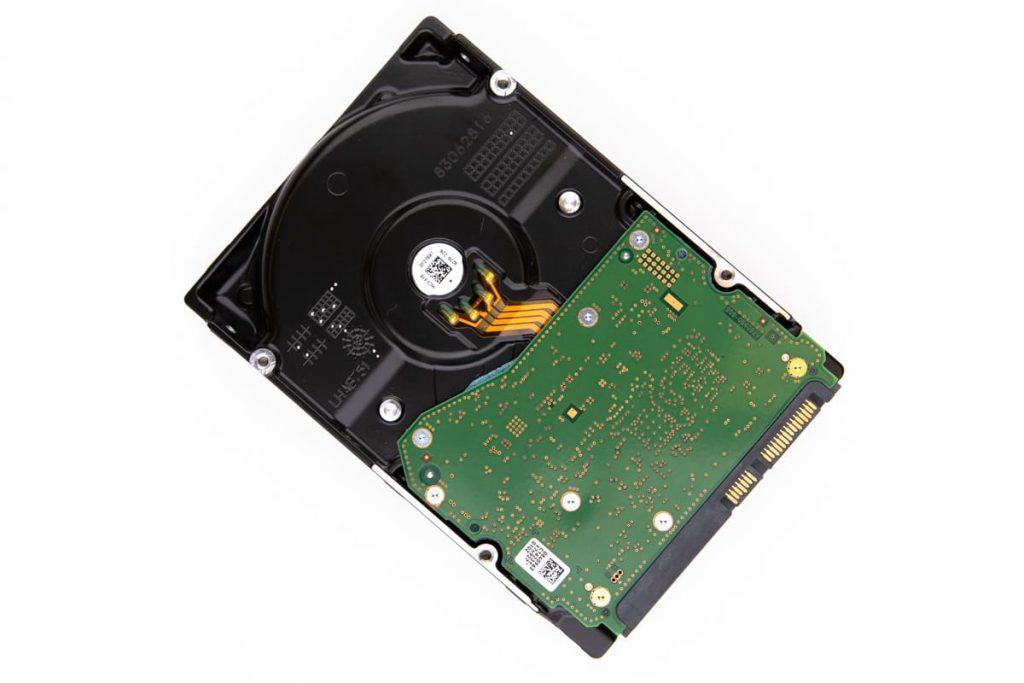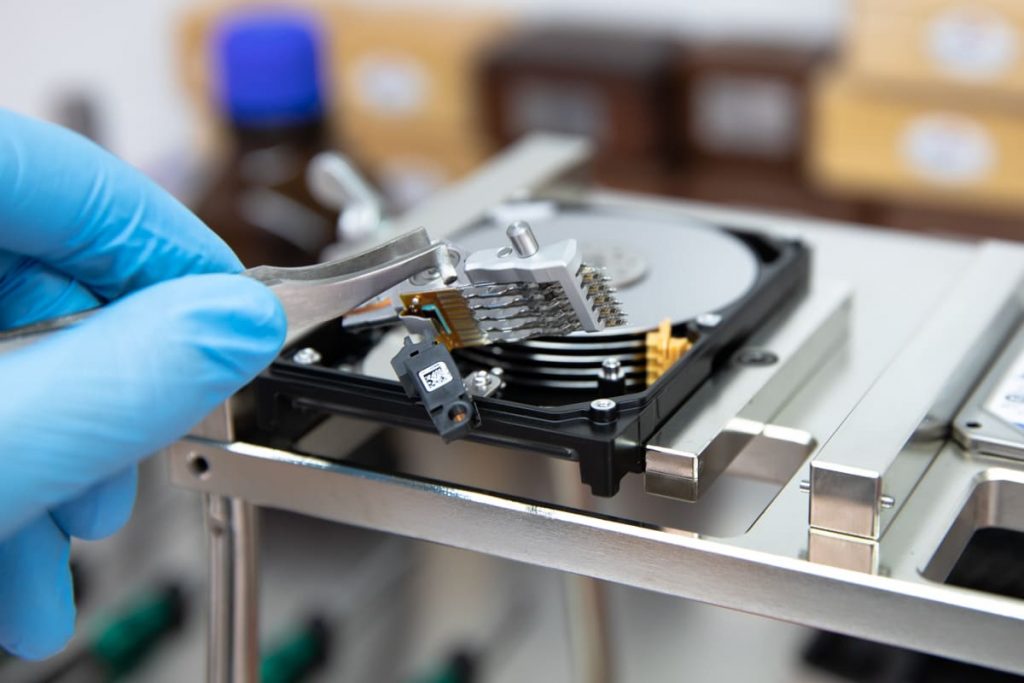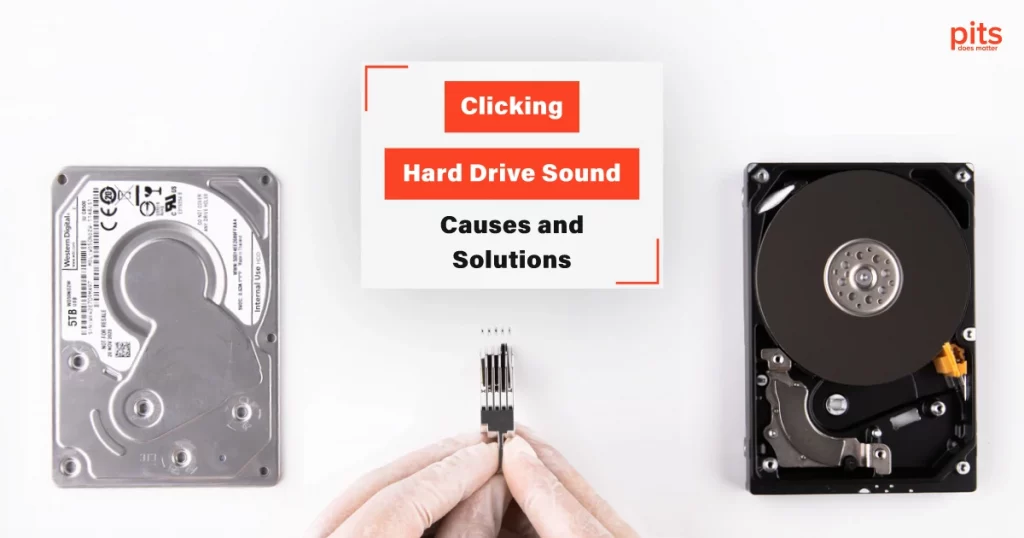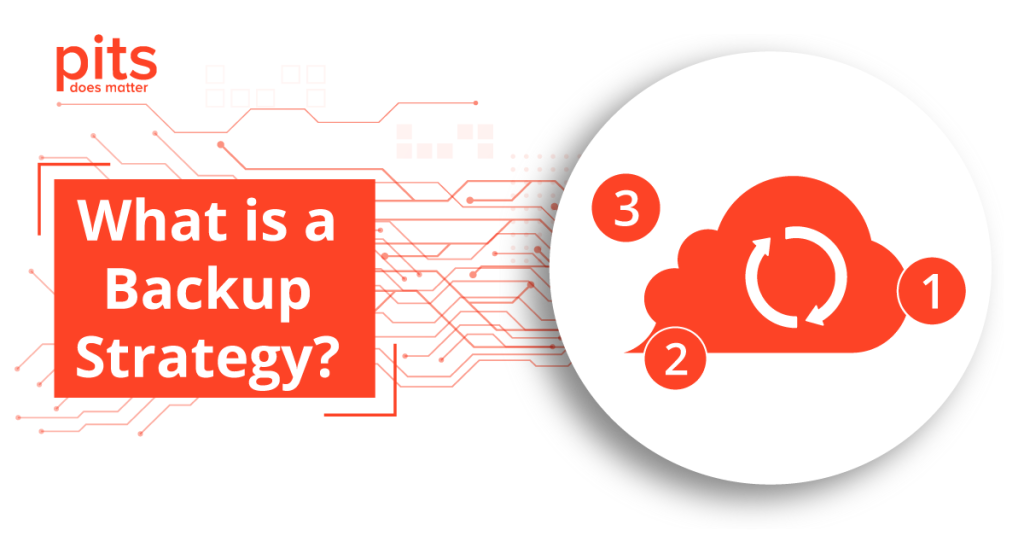A clicking hard drive is one of the most common and alarming problems that computer users may encounter. It often signifies an internal mechanical or software-related failure, and if ignored, the consequences can be catastrophic. Whether it’s your personal files or essential business data, a clicking hard drive should be taken seriously. In this guide, we explore the causes of hard drive clicking sounds, risks involved, DIY dangers to avoid, and how professional data recovery services can help you retrieve lost data safely.

What Causes a Hard Drive to Click?
A hard drive clicking sound—often known as the “click of death”—can have various underlying causes:
1. Physical Damage
Physical damage is a leading cause of a clicking sound. This can result from:
- Accidental drops, bumps, or impacts that misalign or break the read/write heads, actuator arm, or spindle motor.
- Shocks during transportation if the drive is improperly handled or shipped.
- Exposure to excessive vibration when used on unstable surfaces, which can cause internal misalignment.
Even minor physical impacts can lead to a clicking noise as the drive’s heads struggle to locate or read data. This can rapidly escalate to data corruption or complete drive failure.
2. Manufacturing Defects
Although uncommon, factory defects can cause early malfunctions. These issues may arise from:
- Faulty components, such as weak read/write heads or flawed platters.
- Improper quality control during the manufacturing process.
- Damage during shipping, particularly when the packaging fails to absorb impact.
If your hard drive begins clicking shortly after purchase, manufacturing defects may be to blame, and warranty claims should be explored.
3. Software Issues and Power Failures
While mechanical failures are more common, software problems can also lead to hard drive clicking. These include:
- Infected operating systems or malware attacks that prevent the drive from functioning properly.
- Corrupted system files, causing the hard drive to fail during read/write processes.
- Inconsistent power supply from faulty adapters or power surges that interfere with drive operations.
4. Wear and Tear from Heavy Use
All hard drives have a finite lifespan, and over time, they naturally degrade. Contributing factors include:
- Continuous read/write cycles, which place heavy strain on the drive’s mechanical components.
- Fragmentation from insufficient free space, causing the heads to work harder.
- High operating temperatures, accelerating wear and reducing component durability.
Regularly used drives may begin clicking as an early sign that failure is imminent.

How to Prevent the Click of Death
Although it’s impossible to eliminate the risk entirely, proper maintenance and care can minimize the chance of failure:
Back up your data frequently.
Store backups in multiple locations, including cloud storage and external drives.Keep your system free of dust and debris.
Regular cleaning prevents dust from damaging internal components.Monitor environmental conditions.
Avoid extreme heat or humidity, which can damage the drive’s internal structure.Use a surge protector or UPS.
This safeguards your computer from power surges and unexpected outages.Maintain adequate free space.
A cluttered hard drive forces the system to work harder, accelerating wear. Aim to keep at least 10-20% free space for optimal performance.Replace aging drives proactively.
Don’t wait for a drive to fail—replace it every 3-5 years if it is under heavy use.Switch to SSDs for intensive workloads.
Solid-state drives (SSDs) are more resilient to wear and tear, making them better suited for demanding operations.Choose reputable brands.
High-quality drives from known manufacturers are less likely to suffer early failures.

What are the Consequences of a Clicking Hard Drive?
A clicking hard drive can lead to:
1. Permanent Data Loss
If the drive fails entirely, critical files—such as photos, documents, or business data—may become inaccessible. Without a backup, these files could be lost permanently.
2. Business Downtime
For businesses, downtime caused by data loss can disrupt operations, delay projects, and result in financial losses. The longer it takes to recover data, the higher the potential impact.
3. Additional Hardware Damage
A faulty hard drive can impact other system components. Overheating or continuous operation despite clicking sounds can lead to irreparable damage, requiring expensive repairs.
4. Psychological Stress
Losing irreplaceable data can cause emotional stress for individuals and reputational harm to businesses.
What Not to Do: DIY Attempts and Risks of Data Loss
When a hard drive begins clicking, some users try DIY repairs or non-professional fixes—often with disastrous results. Non-professional handling can aggravate the issue and make recovery more difficult, or even impossible. Here’s what to avoid:
1. Don’t Open the Drive
Hard drives contain delicate components, and opening them in a non-cleanroom environment exposes them to dust and static, which can cause permanent damage.
2. Avoid Using Data Recovery Software on Clicking Drives
While software may work on logically corrupted drives, it is ineffective for mechanical issues. Attempting to use recovery software on a clicking drive can cause further damage to the platters and overwrite data.
3. Don’t Keep Using the Drive
If a drive is clicking, continued use will worsen the damage. Powering it on repeatedly can destroy the read/write heads and result in complete data loss.
4. Don’t Freeze or Hit the Drive
Some DIY myths recommend freezing or hitting a drive to stop the clicking sound. These methods don’t work and often cause irreparable damage.
What to Do Instead
- Turn off the device immediately to prevent further damage.
- Contact a professional data recovery service with experience handling clicking hard drives.
How to Fix a Clicking Hard Drive with Professional Help
When dealing with a clicking hard drive, it’s crucial to seek professional data recovery services. Here’s how PITS Global Data Recovery Services can assist:
Expert Diagnostics
Our team performs a comprehensive evaluation to determine the root cause and offers a detailed diagnostic report.Advanced Recovery Techniques
We specialize in recovering data from drives with physical damage, corrupted firmware, or mechanical failures.Broad Device Support
We recover data from desktops, laptops, servers, and external drives, ensuring no device is left behind.Privacy and Security Compliance
We follow strict data security protocols to protect your information from unauthorized access.

Our Data Recovery Process
Initial Consultation:
Contact us, and we’ll conduct an evaluation to provide a cost estimate for recovery.Secure Data Recovery:
Using state-of-the-art tools, we recover data from even severely damaged drives.Transparent Reporting:
We deliver a detailed report on the recovery process and offer advice on preventing future failures.
Frequently Asked Questions
What does it mean if your hard drive is clicking?
A clicking sound suggests a mechanical or electrical problem inside the drive, often related to the read/write heads or spindle motor.
Is a clicking hard drive a bad sign?
Yes, it indicates hardware failure. Continued use without addressing the issue can result in total data loss.
Why does my hard drive rattle?
Rattling noises may indicate loose parts or broken internal components. Immediate professional help is recommended.
How can I check my hard drive’s health?
Use SMART tools or third-party software to monitor the drive’s temperature, performance, and error logs.
What should I do if my hard drive is clicking and beeping?
Turn off the device and contact a professional data recovery service to avoid further damage.


